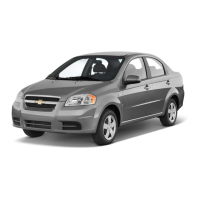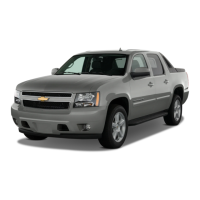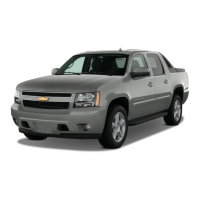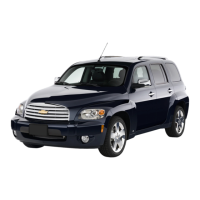Do you have a question about the Chevrolet 2011 Aveo and is the answer not in the manual?
Information for Canadian owners regarding French language copies.
Guidance on how to effectively use the owner's manual for quick information retrieval.
Explanation of hazard symbols and messages to ensure user safety.
A chart detailing various symbols found on the vehicle and their meanings for identification.
Overview of the dashboard layout and its components.
Basic overview of features for new drivers and initial operation.
Operation of door locks, liftgate, and trunk release mechanisms.
Procedures for adjusting manual front seats and head restraints for comfort.
Key information on safety belt usage and the passenger airbag sensing system.
How to adjust exterior/interior mirrors and the steering wheel for optimal position.
Operation of exterior and interior lighting systems, including headlamps and dome lamps.
Operation of windshield wipers, washers, and the vehicle's climate control system.
Details on automatic/manual transmission, cruise control, and related driving systems.
Overview of radio, CD player, auxiliary devices, satellite radio, and speaker settings.
Information on tire pressure monitoring and engine oil life systems for vehicle maintenance.
Information on vehicle keys, keyless entry system, door locks, and security features.
Operation of doors, trunk, liftgate, windows, mirrors, and sunroof for vehicle access.
Explanation of rear door safety locks and child restraint security features.
Procedures for adjusting head restraints and front seats, including lumbar and reclining features.
Guidance on folding and unfolding rear seatbacks for cargo space.
Guide on safety belt usage, pregnancy use, extenders, pretensioners, and proper wear.
Details on the airbag system, including deployment, function, and safety precautions.
Information on selecting and using child restraints, including LATCH system details.
Overview of all storage areas, including glove box, cupholders, and front seatback hooks.
Instructions on how to open and use the glove box.
Information on the location and use of cupholders in the center console and panel.
Covers steering wheel adjustments, controls, horn, wipers, clock, power outlets, lighter, and ashtrays.
Overview of the instrument cluster, including gauges like speedometer, tachometer, and fuel gauge.
Explanation of all warning lights, indicators, and system status lights on the instrument panel.
Information on the trip computer's functionality for monitoring driving data.
Operation of exterior lamps, including headlamps, parking lamps, and DRLs.
Information on interior lighting, including instrument panel illumination and dome lamps.
How to operate headlamps, fog lamps, and related functions like flash-to-pass.
Operation of hazard warning flashers and turn/lane-change signals for safety.
Guidance on familiarizing with the audio system and its basic operation.
Details on finding AM/FM stations, including tuning, seeking, and presets.
Information on XM™ Satellite Radio service, reception, and finding channels.
Information on using the CD player and auxiliary devices for audio playback.
Overview of the vehicle's climate control system for heating, cooling, and ventilation.
Instructions on operating air vents and using defogger functions for comfort.
Guidance on inspecting and replacing the passenger compartment air filter.
Essential advice on defensive driving, avoiding drunk driving, and vehicle control.
Guidance on braking, steering, and handling the vehicle during normal and emergency situations.
Precautions for driving in wet roads, winter conditions, and blizzard situations.
Procedures for new vehicle break-in, ignition positions, engine starting, and transmission use.
Explanation of ABS brakes, parking brake, and cruise control system operation.
Guidance on fuel types, additives, filling the tank, and portable container safety.
Information on tire inspection, rotation, buying new tires, and replacement procedures.
Procedures for jump-starting a vehicle and guidelines for towing.
Tips for maintaining exterior and interior vehicle appearance through proper cleaning.
Identification and basic maintenance of components in the engine compartment.
How to check and add engine oil, transmission fluid, and brake fluid.
Information on the electrical system, overload protection, fuses, and circuit breakers.
Details on tire sidewall labeling, UTQG grading, and wheel alignment.
Importance of maintenance for vehicle condition, fuel economy, and emissions.
Information on scheduled maintenance intervals, checks, and service light indicators.
List of recommended fluids, lubricants, and replacement parts for vehicle service.
A log for recording service dates, odometer readings, and services performed.
Information on locating and understanding the Vehicle Identification Number (VIN).
Key vehicle capacities and specifications, including fluid volumes and torque values.
Key engine specifications including VIN code, transmission type, and spark plug gap.
Steps for resolving customer concerns with dealerships and GM.
How to report safety defects to the US and Canadian governments and General Motors.
Information on vehicle data recording, EDRs, and privacy considerations.
Details on the OnStar system, its services, and data collection.
Details on enrollment, coverage, and services provided by the roadside assistance program.
How to schedule service and access courtesy transportation options.
Guidance on managing vehicle damage repair, emphasizing proper parts and facilities.
Advice on insurance coverage and steps to take after a vehicle crash.
| Brand | Chevrolet |
|---|---|
| Model | 2011 Aveo |
| Category | Automobile |
| Language | English |












